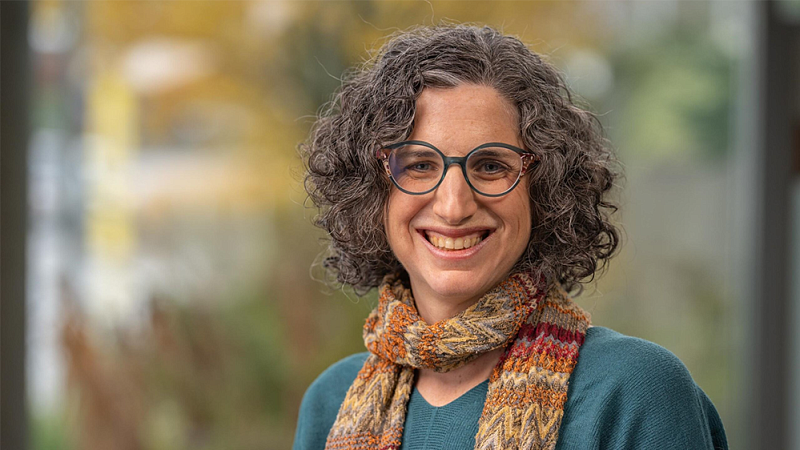
Experiential Learning | Research & Innovation | Community Impact | Career Preparation | Teaching Excellence | 21st Century Liberal Arts | Building Community | Good Vibes | CAS Spotlights | All Stories | Past Issues

Life as a Migrant Worker
BY HENRY HOUSTON
JUNE 9, 2025
More than 50 million people today leave their homes to work temporarily in another country. It's an arrangement that may take workers from Mexico to the US, for example, with the hope of earning a higher wage and improving their family’s livelihood. Their conditions and wages are often subpar and even deadly.
Yet for one Malawian migrant worker who toiled in the South African mines in the 1980s, the cross-border work arrangement allowed him to earn enough money to buy a bicycle, a status symbol that opened new economic possibilities, says Julie Weise, a history associate professor in the University of Oregon College of Arts and Sciences.
“One returned migrant said in an interview that a bicycle saved his son's life by allowing him to bring his son to the hospital late at night when it would have been impossible to walk,” Weise says.
That migrant worker, interviewed by Weise’s research assistant in Malawi, Elias P.K. Mandala, is one voice among many from three case studies Weise is exploring as part of her research on the impact of temporary migrant work policies. Her upcoming book, Guest Worker: Lives across Borders in an Age of Prosperity, 1919-1975, looks at how this type of international policy agreement evolved during the mid-20th century, with a focus on the experiences of temporary workers in more economically prosperous countries: Mexicans in the US, Malawians in South Africa and Spaniards in France.

To support this research, the National Endowment for the Humanities awarded Weise a $60,000 fellowship set to begin in July 2025. Like other NEH recipients, Weise lost her funding in April when the agency announced it was changing funding priorities. Weise plans to continue her work with or without the NEH award.
Focusing on stories from workers on a policy that impacts tens of millions of people around the world can go beyond partisan divides. Critics call for an end to a policy that they say exploits workers, while businesses hope to continue the policy with minimal regulations. Weise’s research shifts the focus to the workers’ perspectives.
“One important point of my book is to push past partisan divides in how to respond to the phenomenon of so-called temporary labor migrants,” Weise says.
—Julie Weise, associate professor of history
Focusing on the experience of working migrants offers a way to understand the evolution of the policies and how they reshaped the countries that sent workers to more developed countries.
“Scholars have debated where on the spectrum of ‘free’ versus ‘unfree’ labor lies in these programs,” Weise says. “But I am arguing that particular framework is not the one through which most of these workers have understood their own lives.”
Oral testimonies and archival evidence of those who migrated suggests workers often look back with painful memories of dangerous working conditions and time separated from loved ones, according to Weise. But workers also feel proud that they were able to fund family financial priorities, encounter new ideas and even buy the latest clothing styles.

Weise scanned documents at more than 25 archives in the six countries she’s writing about. She also relies on other sources, including oral histories, government reports, social science research and digital databases.
Financial support for Weise’s research has come from various sources. She’s received grants from the UO as well as outside the university, including a Fulbright fellowship to conduct research in France while based at the Marseille Institute for Advanced Study.
The status of NEH funding for Weise and other researchers remains uncertain. The American Council of Learned Societies and the Modern Language Association—both of which the University of Oregon belongs to as a member—filed a lawsuit in federal court on May 1 to reverse the NEH funding priority change that led to the elimination of grant programs.
There’s no substitute for what NEH can provide humanities-focused researchers, such as the ability to dedicate a full year to writing a book, Weise says. NEH funding allowed her to develop her first book, Corazón de Dixie: Mexicanos in the U.S. South since 1910, into a prize-winning publication with national impact.
Losing access to a sizable sum means completing her next book will take several years longer, she adds. Nevertheless, she will continue her work.
“No matter how busy I am with teaching, I write for a minimum of 30 minutes every weekday,” she says. “The book always moves forward.”
